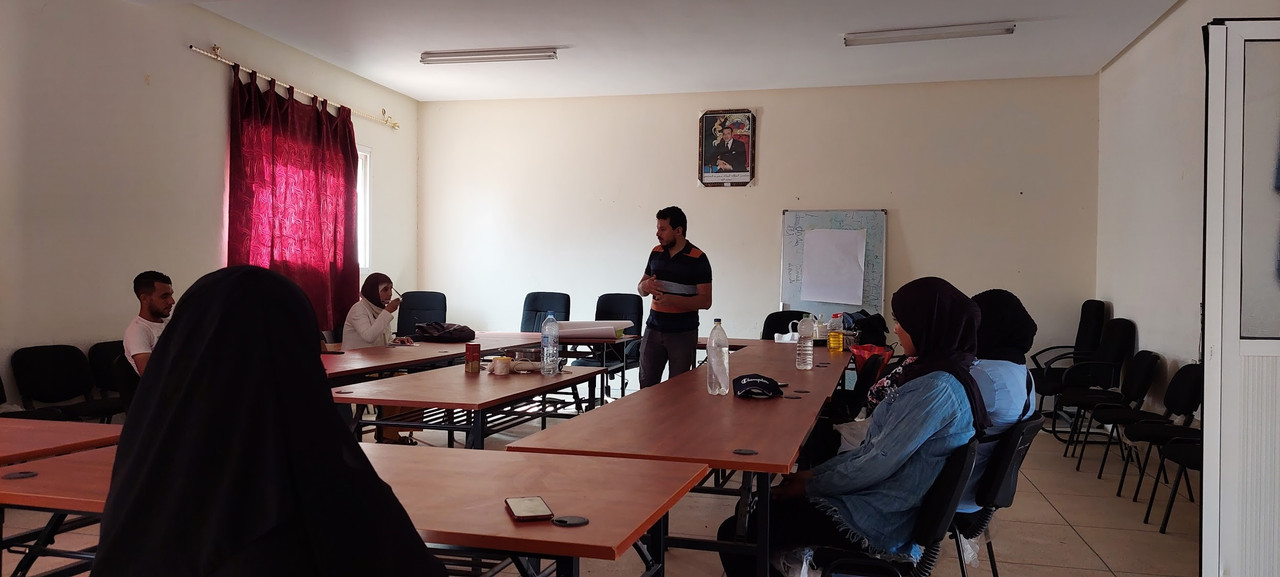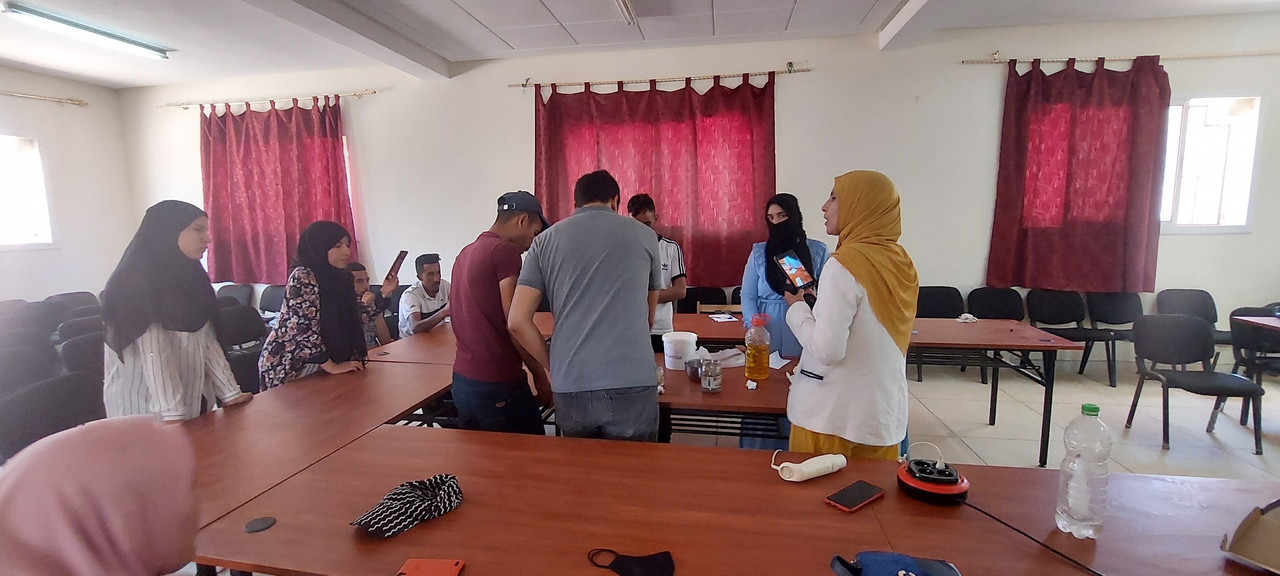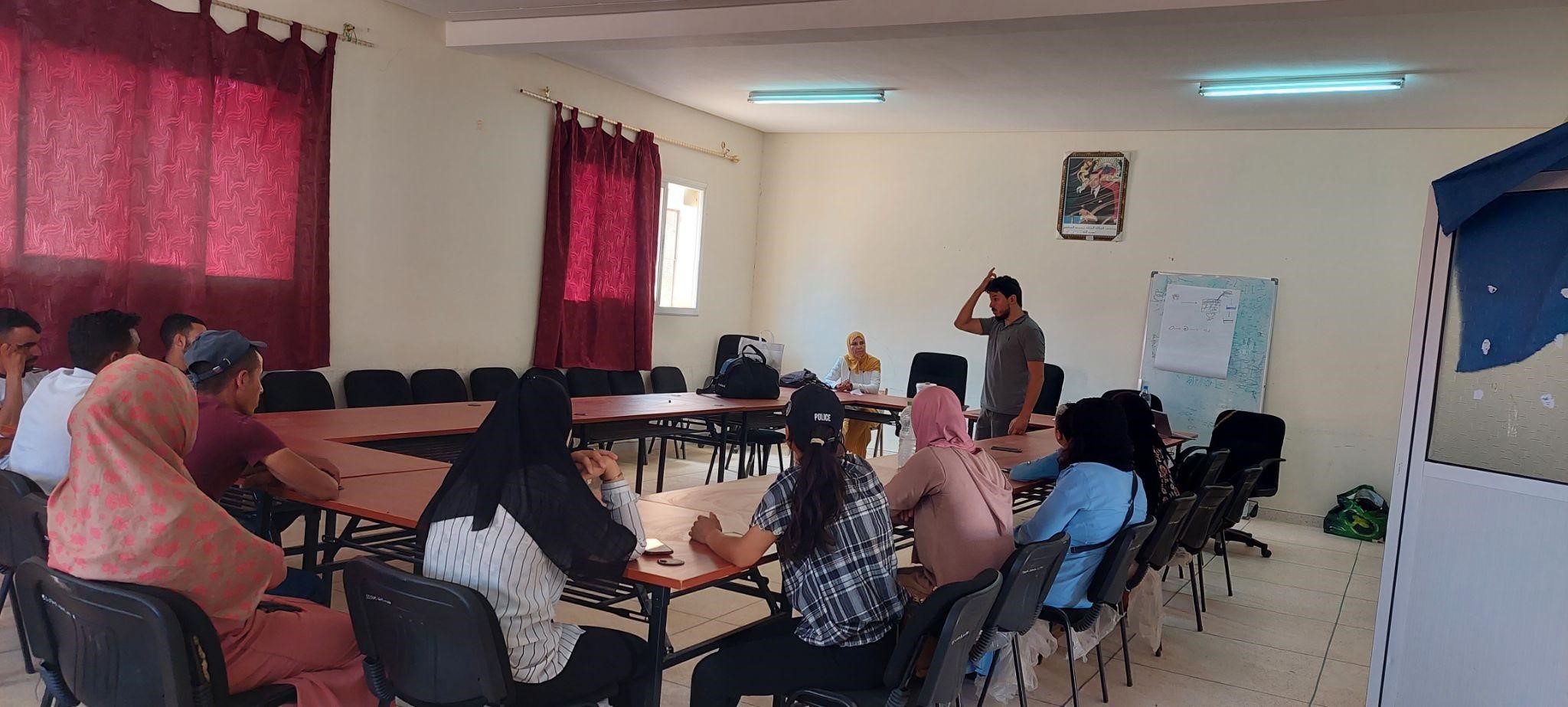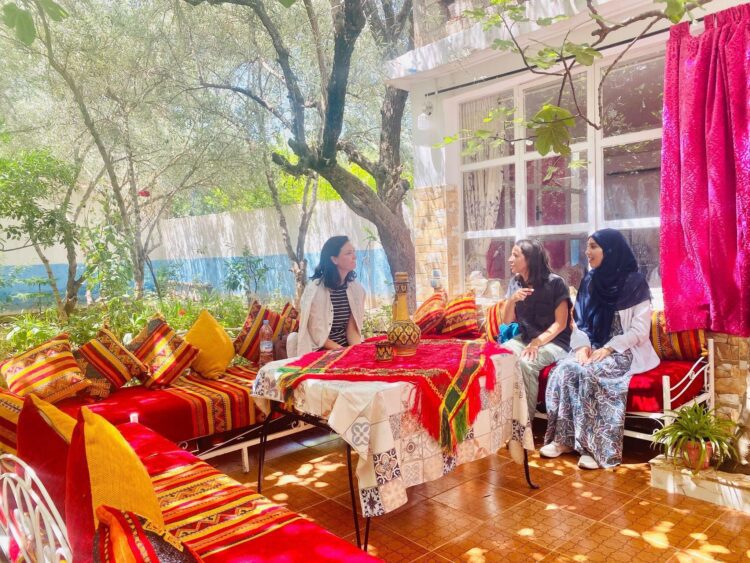By Mohammed Kerzazi
F2F Expert Local Volunteer

On July 23rd, and as agreed with the High Atlas Foundation’s (HAF’s) Farmer-to-Farmer team, we went to Tendrara Commune in order to meet up with the members of Les Hauts Plateaux Cooperative at the Tendrara’s cooperatives’office.
After the warm welcome of the cooperative’s president, we organized a small meeting in which we highlighted the objectives and their expectations from the training. The meeting was also an opportunity for us to get to know the activities of the cooperative more closely.
It revealed to us that the cooperative had not yet decided on an activity related to cosmetic production, and the current activity is sheep farming.
We agreed that they would spend two days learning how to make soaps, cream, and shampoo.
The first day of the training opened with information on the production of cosmetic products, the socio-economic interest, and the market situation. Then we started with the production of soap (hard soap and Moroccan scrub soap). Afterwards, we moved on to producing the lotion.
On the following day, the members of Les Hauts Plateaux Cooperative continued their training in the early morning with the local expert teaching them how to produce shampoo.
During this two-day workshop, the participants learned the basics of cosmetics production with the available materials. I appreciated the active participation of all the attendees who paid attention and showed their interests.

The members of Les Hauts Plateaux cooperative during the training period conducted by the F2F Local expert volunteer Photo credit: Houria Chouhab/ HAF’s F2F
While working with this cooperative, I noticed that there is an absence of an activity related to cosmetic production. It is understood that their initial field was livestock, but they want to change it, yet they need to master the needs of this new field. As a solution, I suggest that this co-op creates a business plan to produce the raw materials of cosmetic production: aromatic plants, essential oils, and vegetable oils.
I have also noticed that the cooperative’s president does most of the tasks and does not include the rest of the members. We have come across some cooperatives with the same issue, and this happens when the members rely too much on the head of that cooperative, or because the president prefers to do all the tasks by herself. Again, this issue might affect the productivity of the cooperative in the long term.
Therefore, and in order to ensure the sustainability of their activities, I suggest that the president of the cooperative include and engage other members in the cooperative’s management.






